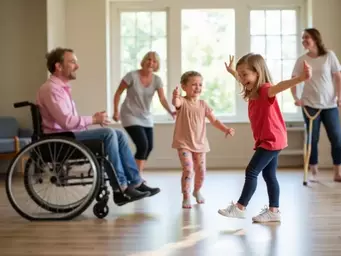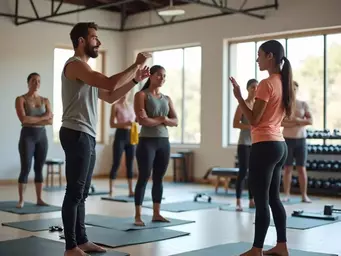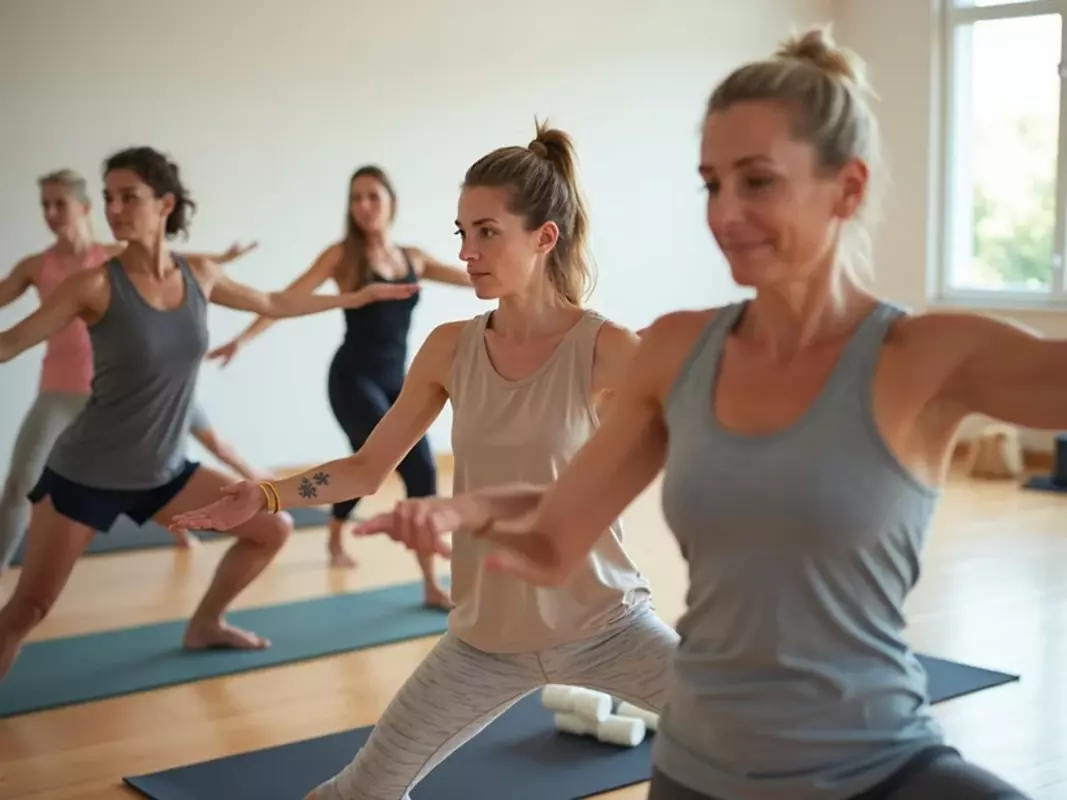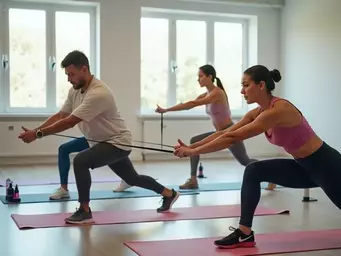Inclusive Exercise Programs for All
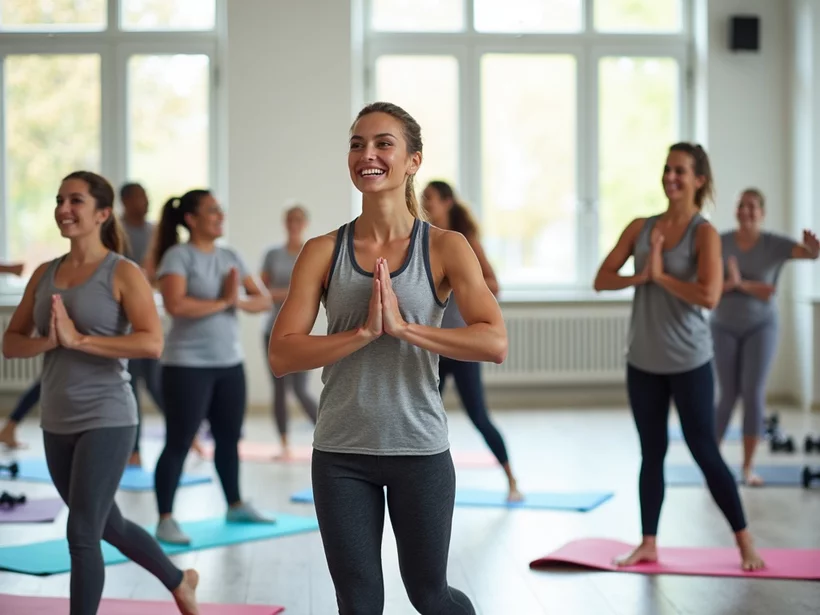
What if the key to unlocking a better quality of life for individuals with intellectual disabilities lies in tailored exercise programs? These specially designed activities can break down barriers and foster a sense of belonging. Let’s explore the crucial insights that can guide us toward more inclusive fitness opportunities.
What You Will Learn
- Understanding intellectual disabilities and their unique challenges in engaging with physical activity.
- Recognizing the profound physical health benefits of tailored exercise, including improved strength and motor skills.
- Identifying psychosocial advantages, such as boosted self-esteem and enhanced social skills through participation in exercise programs.
- Exploring inclusive fitness opportunities that promote community integration and support for individuals with intellectual disabilities.
- Learning effective strategies to overcome barriers to participation, such as transportation issues and accessibility concerns.
Benefits of Exercise for Individuals with Intellectual Disabilities
Engaging in regular exercise holds numerous advantages, especially tailored programs for individuals with intellectual disabilities. Below are key areas where exercise makes a positive impact, leading to improved outcomes for NDIS participants.
Physical Health Benefits
- Increased strength and endurance
- Improved coordination and balance
- Enhanced flexibility and mobility
Cognitive Health Contributions
- Improved focus and attention
- Better memory retention
- Increased motivation and engagement
Psychosocial Benefits
- Increased confidence in social settings
- Improved friendships and social networks
- Enhanced teamwork and cooperation skills
Independence and Self-Determination
- Greater self-determination in daily activities
- Increased willingness to try new things
- Improved decision-making skills
Understanding the Need for Exercise Programs Tailored to Individuals with Intellectual Disabilities
At Health Moves, we recognize that individuals with intellectual disabilities often face unique challenges when it comes to physical activity. Understanding these challenges is the first step toward developing effective exercise programs that can truly make a difference in their lives. So, let’s dive into what intellectual disabilities are and how they impact physical activity!
Defining Intellectual Disabilities and Their Impact on Physical Activity
Overview of Intellectual Disabilities
Intellectual disabilities refer to a wide range of conditions that affect cognitive functioning and adaptive behavior. These can include challenges with learning, problem-solving, and everyday skills. For many individuals, these disabilities can create barriers to engaging in regular physical activity, which is crucial for overall health and well-being.
Imagine trying to navigate a world that seems designed for others. For someone with an intellectual disability, this can mean facing additional hurdles when it comes to participating in sports or exercise programs. This is why tailored movement programs are essential—they provide the support and structure needed to help individuals thrive, as discussed in our insights on NDIS and Exercise Physiology.
Challenges in Engaging in Physical Activity
Engaging in physical activity can be daunting for individuals with intellectual disabilities due to several factors:
- Social Barriers: Fear of judgment or exclusion can hold individuals back from participating in group activities.
- Physical Limitations: Some may face mobility issues or lack the motor skills required for certain sports.
- Communication Challenges: Difficulty in expressing needs or understanding instructions can make participation tough.
These challenges highlight the importance of creating *inclusive and supportive environments* that encourage participation. As an Exercise Physiologist, I often see firsthand how tailored programs can break down these barriers and create opportunities for success.
Benefits of Engaging in Exercise for Individuals with Intellectual Disabilities
Now that we’ve explored the challenges, let’s look at the bright side! Engaging in exercise can provide numerous benefits for individuals with intellectual disabilities. Not only does it promote physical health, but it also enhances emotional and social well-being.
Physical Health Benefits
Improvement in Physical Fitness and Motor Skills
Regular exercise can lead to significant improvements in physical fitness, including:
- Increased strength and endurance
- Improved coordination and balance
- Enhanced flexibility and mobility
These benefits can translate into greater independence and a better quality of life. Through our tailored movement programs at Health Moves, we focus on fostering these skills in a supportive way!
Contributions to Cognitive Health
Physical activity isn't just great for the body; it’s also beneficial for the mind! Studies show that regular exercise can enhance cognitive function, leading to:
- Improved focus and attention
- Better memory retention
- Increased motivation and engagement
Engaging in exercise can create a positive feedback loop, where improved cognitive abilities enhance participation in physical activities and vice versa. It’s truly exciting to see how movement can spark growth!
Psychosocial Benefits
Enhancing Self-esteem and Social Skills
Participating in exercise programs can significantly boost self-esteem and social interaction. When individuals achieve fitness goals, no matter how small, it fosters a sense of accomplishment. This can lead to:
- Increased confidence in social settings
- Improved friendships and social networks
- Enhanced teamwork and cooperation skills
At Health Moves, we celebrate every achievement and encourage connections to build a supportive community, helping individuals achieve their NDIS goals through movement programs.
Fostering Independence and Self-Determination
Exercise can promote independence by allowing individuals to set personal fitness goals and work towards them. This sense of control is vital for personal development, leading to:
- Greater self-determination in daily activities
- Increased willingness to try new things
- Improved decision-making skills
When individuals feel empowered, they are more likely to engage in their own health journey, creating a positive ripple effect in their lives!
Inclusive Fitness Opportunities
Adapted Sports and Recreation
Inclusive fitness opportunities are fantastic for breaking down barriers. Programs that offer adapted sports can help individuals with intellectual disabilities participate actively in their communities. These programs often include:
- Modified sports leagues
- Inclusive dance classes
- Accessible fitness clubs
Here at Health Moves, we strive to connect individuals with local resources that fit their interests and abilities.
Community Recreation and Social Inclusion
Community-based recreation offers invaluable experiences where individuals can bond over shared interests. Benefits include:
- Building friendships and connections
- Experiencing a sense of belonging
- Participating in community events
These opportunities allow individuals to feel valued and included, reinforcing the idea that everyone deserves the chance to move and connect!
Quick Summary
Here's a brief recap of the key points discussed so far:
- Individuals with intellectual disabilities face unique challenges that can hinder their engagement in physical activity.
- Tailored exercise programs can significantly improve physical health, cognitive functioning, and psychosocial well-being.
- Overcoming barriers to participation is crucial for enhancing the quality of life for individuals with disabilities.
Frequently Asked Questions (FAQs)
Summary of Key Insights on Exercise Programs for Individuals with Intellectual Disabilities
As we've explored, tailored exercise programs hold significant benefits for individuals with intellectual disabilities. These adapted exercise regimes do more than promote physical fitness; they enhance overall quality of life. The importance of integrating these programs cannot be overstated, as they provide a pathway to better health, improved social skills, and greater independence.
To recap, the benefits of adapted exercise include not only physical health improvements but also substantial psychosocial gains. Engaging in regular, customized physical activity fosters self-esteem, social interaction, and the ability to engage with peers, which are crucial elements for anyone, especially individuals with disabilities.
Review of Overcoming Barriers and Implementing Effective Strategies
Despite the clear benefits, barriers still exist that can hinder participation in exercise programs. Common challenges include transportation issues, financial constraints, and accessibility problems. However, creating effective strategies to overcome these barriers can significantly enhance participation rates. Here are some strategies to consider:
- Encourage active involvement from caregivers and support staff to facilitate access.
- Engage with local community initiatives to enhance support and resources.
- Utilize technology to bridge gaps in access and communication.
At Health Moves, we believe that by fostering community engagement and providing accessible resources, we can help individuals with intellectual disabilities thrive. It’s essential to create an environment that encourages participation and celebrates achievements, regardless of size.
Encouragement for Action and Engagement
Invitation to Explore Adapted Exercise Programs
If you or someone you know could benefit from adapted exercise programs, I invite you to take the next steps! Exploring local resources and community support initiatives can be a great starting point. Here are some ways to get involved:
- Visit local community centers for adaptive sports programs.
- Connect with organizations that specialize in fitness for individuals with disabilities.
- Consider participating in workshops or information sessions focused on NDIS support provided by exercise physiologists.
Additionally, training opportunities for caregivers and staff can create a ripple effect of support. By equipping those who assist individuals with intellectual disabilities, we create a stronger foundation for success.
Call for Continued Research and Development in this Field
As we advance, it’s vital to advocate for continued research and development within the field of adapted exercise programs. The importance of evidence-based practices cannot be emphasized enough. This research will help us understand the best methods to support individuals effectively and ensure programs are effective and engaging.
We encourage everyone to share their experiences and feedback! At Health Moves, we value insights from our community and believe that by sharing successful strategies, we can inspire others to take action. Together, we can contribute to a future where everyone has the opportunity to thrive through movement, much like how we approach building movement programs for disabilities.
Recap of Key Points
Here is a quick recap of the important points discussed in the article:
- Understanding Intellectual Disabilities: Recognizing the unique challenges faced by individuals with intellectual disabilities is crucial for developing effective exercise programs.
- Importance of Tailored Programs: Customized exercise programs provide the necessary support and structure for individuals to engage in physical activity, overcoming barriers such as social fears, physical limitations, and communication challenges.
- Benefits of Exercise: Regular physical activity enhances physical fitness, cognitive function, self-esteem, and social skills, leading to a better quality of life.
- Inclusive Opportunities: Adapted sports and community recreation foster social inclusion and a sense of belonging, allowing individuals to connect and thrive.
- Strategies to Overcome Barriers: Encouraging caregiver involvement, engaging community initiatives, and utilizing technology can enhance participation in exercise programs.
- Call to Action: Explore local resources and community support initiatives to access adapted exercise programs and advocate for continued research in this vital field.

